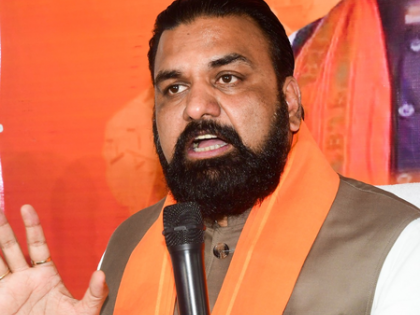Congress responsible for Nepal crisis: Bihar Dy CM
By IANS | Updated: September 10, 2025 22:50 IST2025-09-10T22:49:06+5:302025-09-10T22:50:07+5:30
Patna, Sep 10 Amid the ongoing turmoil in Nepal, Bihar Deputy Chief Minister Samrat Choudhary held the Congress ...

Congress responsible for Nepal crisis: Bihar Dy CM
Patna, Sep 10 Amid the ongoing turmoil in Nepal, Bihar Deputy Chief Minister Samrat Choudhary held the Congress party responsible for the situation in the neighbouring country.
Speaking to reporters in Patna, Choudhary said, “Today’s anarchism in Nepal is only due to mistakes of the Congress party. If Nepal were a part of India, such turmoil would not have taken place. Congress separated these neighbouring countries. If Nepal were part of India, it would have been a peaceful and prosperous state. The same applies to Pakistan.”
Nepal has plunged into a deep political crisis following the resignation of Prime Minister KP Sharma Oli on Tuesday, after Gen Z–led violent protests spread across the country, including Kathmandu.
What began as demonstrations against restrictions on social media and alleged corruption soon turned violent, reminiscent of recent unrest in Bangladesh.
Protesters attacked Parliament, the Prime Minister’s Office, and the residences of President Ramchandra Paudel, former premiers, and Oli himself.
Several government buildings, schools, and ministers’ houses were set ablaze, dozens were injured, and vehicles were torched.
The situation forced authorities to shut down Tribhuvan International Airport, disrupting air traffic.
Choudhary’s remarks have brought back focus on a little-known historical episode.
According to former President Pranab Mukherjee’s book ‘The Presidential Years’, Nepal’s King Tribhuvan Bir Bikram Shah had once proposed merging Nepal with India.
In the late 1940s, concerned about China’s communist revolution and its occupation of Tibet in 1950, King Tribhuvan approached then Prime Minister Jawaharlal Nehru with a merger request. However, Nehru rejected the idea, arguing that Nepal should remain an independent and democratic nation.
At the time, Nepal was undergoing political upheaval. The Rana regime, which had ruled since 1846, collapsed in 1951, paving the way for a constitutional monarchy under King Tribhuvan.
Historians, however, remain divided on Mukherjee’s claim, with some suggesting it was an attempt to dent Nehru’s legacy.
Choudhary’s strong words linking Congress policies to present-day instability in Nepal have added a new political dimension to Bihar’s discourse while the neighbouring country grapples with its worst unrest in decades.
Disclaimer: This post has been auto-published from an agency feed without any modifications to the text and has not been reviewed by an editor
Open in app